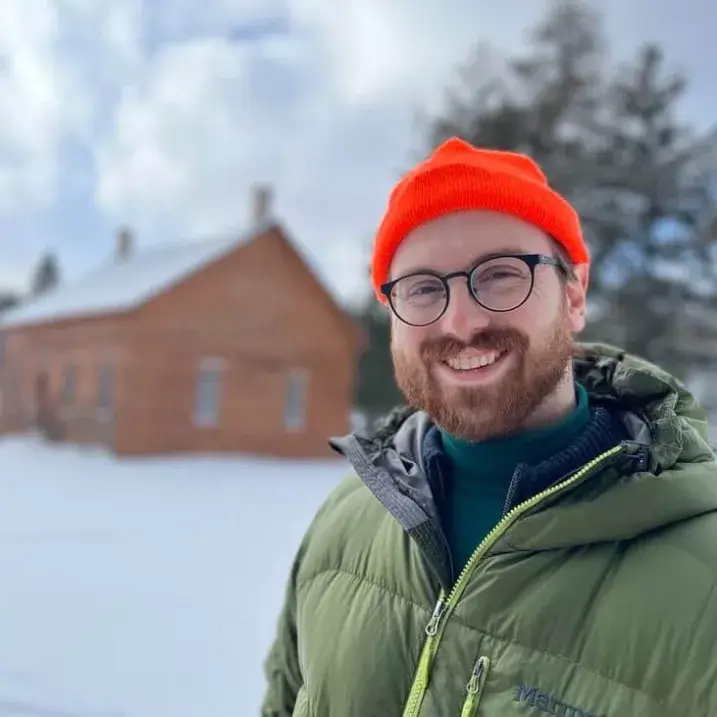- B.S. Biology, Aquinas College (Grand Rapids, MI)
Areas of expertise
𝘗𝘴𝘦𝘶𝘥𝘰𝘮𝘰𝘯𝘢𝘴 𝘢𝘦𝘳𝘶𝘨𝘪𝘯𝘰𝘴𝘢 detection and transcriptional response to host-derived sphingolipids
BIO
I am a Ph.D. Candidate in Matt Wargo's laboratory where I study how the opportunistic pathogen, 𝘗𝘴𝘦𝘶𝘥𝘰𝘮𝘰𝘯𝘢𝘴 𝘢𝘦𝘳𝘶𝘨𝘪𝘯𝘰𝘴𝘢, detects and responds to the host-derived lipid, sphingosine. Sphingosine is an antimicrobial lipid that is enriched in epithelial tissues and plays and anti-infectious role; however, using its sphingosine-responsive transcription regulator (SphR) and sphignosine-metabolizing enzymes, 𝘗. 𝘢𝘦𝘳𝘶𝘨𝘪𝘯𝘰𝘴𝘢 is capable of protecting itself from sphingosine's bacteriostatic effects. Specific questions I am asking in my research are: what are the molecular details that guide SphR sphingosine binding and specificity, and to determine whether sphingosine detoxification by 𝘗. 𝘢𝘦𝘳𝘶𝘨𝘪𝘯𝘰𝘴𝘢 functions as a public good, protecting susceptible bacteria in co-culture. In 2018, I graduated with from Aquinas College in Grand Rapids, Michigan with a B.S. in Biology. As an undergraduate, I characterized the substrate profile of a novel β-lactamase. under the guidance of Dr. Tim Henshaw. After graduating, I worked at Wayne State University School of Medicine with Karin List, Ph.D. studying the role of a type II transmembrane serine protease, TMPRSS13, in breast and colorectal cancer. Outside of the lab I enjoy hiking, fishing, and learning about all living things large and small.
Bio
I am a Ph.D. Candidate in Matt Wargo's laboratory where I study how the opportunistic pathogen, 𝘗𝘴𝘦𝘶𝘥𝘰𝘮𝘰𝘯𝘢𝘴 𝘢𝘦𝘳𝘶𝘨𝘪𝘯𝘰𝘴𝘢, detects and responds to the host-derived lipid, sphingosine. Sphingosine is an antimicrobial lipid that is enriched in epithelial tissues and plays and anti-infectious role; however, using its sphingosine-responsive transcription regulator (SphR) and sphignosine-metabolizing enzymes, 𝘗. 𝘢𝘦𝘳𝘶𝘨𝘪𝘯𝘰𝘴𝘢 is capable of protecting itself from sphingosine's bacteriostatic effects. Specific questions I am asking in my research are: what are the molecular details that guide SphR sphingosine binding and specificity, and to determine whether sphingosine detoxification by 𝘗. 𝘢𝘦𝘳𝘶𝘨𝘪𝘯𝘰𝘴𝘢 functions as a public good, protecting susceptible bacteria in co-culture. In 2018, I graduated with from Aquinas College in Grand Rapids, Michigan with a B.S. in Biology. As an undergraduate, I characterized the substrate profile of a novel β-lactamase. under the guidance of Dr. Tim Henshaw. After graduating, I worked at Wayne State University School of Medicine with Karin List, Ph.D. studying the role of a type II transmembrane serine protease, TMPRSS13, in breast and colorectal cancer. Outside of the lab I enjoy hiking, fishing, and learning about all living things large and small.
